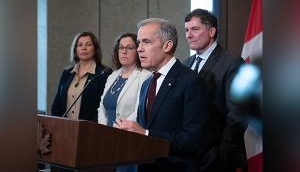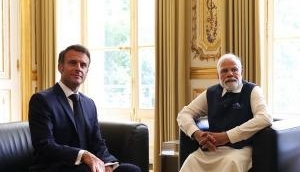
- The Iranian diplomatic mission has been asked to leave Saudi Arabia within 48 hours as Saudis evacuate embassy staff from Tehran.
- Iranian President Hassan Rouhani on Sunday ordered the arrest and prosecution of individuals involved in the embassy attack
After drawing global condemnation for the execution of Shia cleric Nimr-al-Nimr - known as the face of Arab spring protests - Saudi Arabia has announced a severing of diplomatic ties with Iran. The decision was taken after Saturday's attack on its embassy in Tehran during protests against executions in the kingdom.
Saudi foreign minister, Adel al-Jubeir, made the announcement on Sunday. The Saudi foreign ministry also announced that the staff of its diplomatic mission had been evacuated and were on their way back to the kingdom.
According to a few later reports, the flight carrying the Saudi embassy staff had landed in Dubai, UAE.
On 2 January, Saudi Arabia's interior ministry the execution of 47 people on terrorism charges, including a convicted al-Qaeda leader and a Shia religious leader.
Mir-al-Nimr's execution draws condemnation

AFP
Iranian President Hassan Rouhani on Sunday ordered the arrest and prosecution of individuals involved in the embassy attack, while also condemning the execution of Nimr-al-Nimr.
Al-Nimr had been a vocal critic of Bahrain's Sunni-led monarchy, which suppressed the 2011 Shiite-led protests. Saudi Arabia sent troops to help Bahrain quash the uprising, fearing it would spread.
Amnesty International has called the verdict against the cleric, who was in his mid-50s, part of a campaign by Saudi authorities to "crush all dissent."
Before his arrest in 2012, al-Nimr had said the people do not want rulers who kill and carry out injustices against protesters. He was asked at his trial if he disapproves of the Al Saud ruling family.
"If injustice stops against Shiites in the east, then (at that point) I can have a different opinion," the cleric responded, according to his brother Mohammed, who attended court sessions and spoke to The Associated Press before the verdict.
Al-Nimr did not deny the political charges against him, but said he never carried weapons or called for violence.
First published: 4 January 2016, 12:33 IST






![BJP's Kapil Mishra recreates Shankar Mahadevan’s ‘Breathless’ song to highlight Delhi pollution [WATCH] BJP's Kapil Mishra recreates Shankar Mahadevan’s ‘Breathless’ song to highlight Delhi pollution [WATCH]](https://images.catchnews.com/upload/2022/11/03/kapil-mishra_240884_300x172.png)

![Anupam Kher shares pictures of his toned body on 67th birthday [MUST SEE] Anupam Kher shares pictures of his toned body on 67th birthday [MUST SEE]](https://images.catchnews.com/upload/2022/03/07/Anupam_kher_231145_300x172.jpg)






